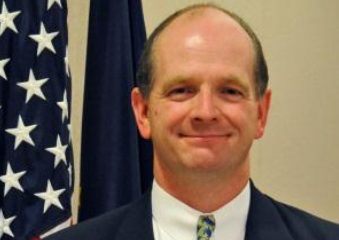ON ANNIVERSARY OF LEGALIZED ABORTION, TWO DISTINCT REACTIONS
While New York Gov. Andrew Cuomo was signing an act that allows non-doctors to conduct abortions and allows the procedure up until the mother’s due date in some instances, Alaska Gov. Michael Dunleavy had a different reaction to the anniversary of Roe v. Wade.
On the day marking legalized abortion, Dunleavy signed a resolution supporting the right to life of the unborn.
CUOMO’S ‘REPRODUCTIVE HEALTH ACT’
Cuomo, who leads a progressive state, signed what he called the Reproductive Health Act, which allows abortions at any time if the mother’s health is endangered or if the unborn child is not viable. Prior to the act, abortions were only allowed until the 24th week of pregnancy if a woman’s life was at risk.
Cuomo called the act “a historic victory for New Yorkers and for our progressive values.” Then, he directed the 408-foot spire on the One World Trade Center, the Governor Mario M. Cuomo Bridge, the Kosciuszko Bridge, and the Alfred E. Smith Building in Albany to be lit with pink lights, to celebrate the “achievement and shine a bright light forward for the rest of the nation to follow.”

Cuomo’s law effectively eliminates all sideboards on abortion, according to Christina Fadden, who chairs the New York State Right to Life. “RHA has made abortion a ‘fundamental right’ and prohibits all limits on abortion, which not even Roe v. Wade did.” He said he plans to attempt to enshrine abortion rights into the New York State Constitution.
DUNLEAVY: ‘MOURN THE MILLIONS OF LIVES CUT SHORT’
On the other coast, in the far upper corner, Alaska Gov. Mike Dunleavy had penned an eloquent ode to life itself on the anniversary of Roe vs. Wade. He encouraged Alaskans to consider the “loss of laughter, of tears, and of life itself of the generations lost through abortion.”
His proclamation says, in part:
“…to mark the 46th year since the United States Supreme Court’s decision in Roe v. Wade, we join with the President of the United States, Donald J. Trump, and mourn the millions of lives cut short, and the tremendous promise lost as a result of abortion on demand; and
… as a state, we must resolve to protect innocent human life at every stage. As Governor, I am committed to the promise made in our Declaration of Independence to protect Life, Liberty and the Pursuit of Happiness. I recognize that without Life, there is no Liberty. Without Liberty, there is no freedom for the individual Pursuit of Happiness. My policy will always be to defend human life at all stages; and
… we must do everything we can to protect the sanctity of life for the most vulnerable and defenseless among us, including people with disabilities. Americans with disabilities like Down Syndrome are an inspiration and their example of joy and perseverance enriches our lives – they should never be targets for abortion; and
…our Constitution and our laws contain many protections for innocent life, and I will work with the Alaska Judicial Council to encourage the nomination of Judges who believe the Constitution is a fundamental contract between the People and their government; and
…as Governor, I commend the pro-life Alaskans who have volunteered to help prevent the deaths of innocent unborn children. For more than 46 years, courageous and faithful citizens, many from college campuses and high schools across Alaska, from all walks of life, have extended a helping hand to all those expectant parents experiencing an unexpected pregnancy; and
…as your Governor, I am committed to protecting innocent life every day and at every stage. We must stand tall as a state, and show respect and love for the dignity and worth of every person, at every stage of life – the unborn, the aged, the disabled, the mentally ill – all our most vulnerable neighbors; and
…I respectfully encourage all Alaskans to care for women with unexpected or unwanted pregnancies, to support adoption and foster care, and to ensure that every child can be raised to live the life they choose.”
Dunleavy’s proclamation left no doubt about where he stands on the question of abortion.








